Introduction
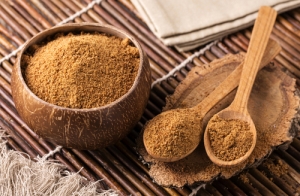
Coconut sugar and coconut palm sugar are two popular sweetening agents that have gained attention for their perceived health benefits and unique flavor profiles. Although they are often used interchangeably, there are some key differences between the two. This article explores the production processes, nutritional values, taste profiles, and environmental sustainability of coconut sugar and coconut palm sugar. By understanding these differences, consumers can make informed choices about which sweetener to use in their culinary creations. Whether you’re looking for a low glycemic index sweetener or a sustainable alternative to traditional sugar, read on to discover the nuances of coconut sugar and coconut palm sugar.
Background On Coconut Sugar And Coconut Palm Sugar
Coconut sugar and coconut palm sugar are both natural sweeteners derived from the sap of coconut palm trees. They have a long history of use in Southeast Asian cuisines and are gaining popularity worldwide as healthier alternatives to refined sugar. Coconut sugar is made from the sap of the flower bud of the coconut palm tree, while coconut palm sugar is made from the sap of the coconut palm tree itself. Both sugars undergo a process of boiling and evaporation to remove excess moisture and create a granulated sugar-like consistency. These sweeteners are known for their distinct caramel-like flavor and are commonly used in baking, cooking, and beverages.
Coconut Sugar Overview
Coconut sugar, also known as coco sugar, is a natural sweetener derived from the sap of coconut palm tree flower buds. It is a popular alternative to refined sugar due to its lower glycemic index and rich flavor. Coconut sugar has a caramel-like taste with a hint of sweetness, making it a versatile ingredient in various culinary applications. Its granulated texture is similar to traditional sugar, allowing for easy substitution in recipes. Besides its delicious taste, coconut sugar also offers several health benefits, including containing minerals like iron, zinc, and calcium, as well as antioxidants. Additionally, it is a sustainable and environmentally-friendly choice compared to other sweeteners.
Coconut Sugar Production Process

The production process of coconut sugar begins with collecting the sap from the flower buds of coconut palm trees. Farmers make a gentle incision on the buds, allowing the sap to flow into containers. The sap is then heated and boiled to evaporate the water content, leaving behind a thick syrup. This syrup is then cooled and stirred until it crystallizes into granules. Finally, the granulated coconut sugar is collected and packed for distribution. This process retains the natural flavor and nutrients of the coconut palm, making coconut sugar a popular choice for those seeking healthier alternatives to refined sugar.
Health Benefits Of Coconut Sugar
Coconut sugar offers some potential health benefits worth considering. Firstly, it contains small amounts of minerals like iron, zinc, calcium, and potassium. These minerals play crucial roles in maintaining overall health and well-being. Secondly, coconut sugar has a lower glycemic index compared to regular sugar, which means it may lead to a slower rise in blood sugar levels. This makes it a suitable option for individuals with diabetes or those looking to manage their blood sugar levels. However, it’s important to note that coconut sugar should still be consumed in moderation as part of a balanced diet.
Coconut Palm Sugar Overview
Coconut palm sugar, also known as coconut sugar, is a natural sweetener derived from the sap of coconut palm trees. The process of extracting coconut palm sugar involves collecting the sap from the flower buds of the coconut palm tree and then evaporating the liquid to form granules.
Unlike refined white sugar, coconut palm sugar retains some of the nutrients present in the sap, such as iron, zinc, calcium, and potassium. It also has a rich flavor profile, often described as caramel-like, which adds a unique taste to recipes.
Coconut palm sugar is a popular alternative sweetener for those seeking a natural, unrefined option. It can be used as a 1:1 replacement for regular sugar in most recipes, making it a versatile choice for baking, cooking, and sweetening beverages.
Coconut Palm Sugar Production Process
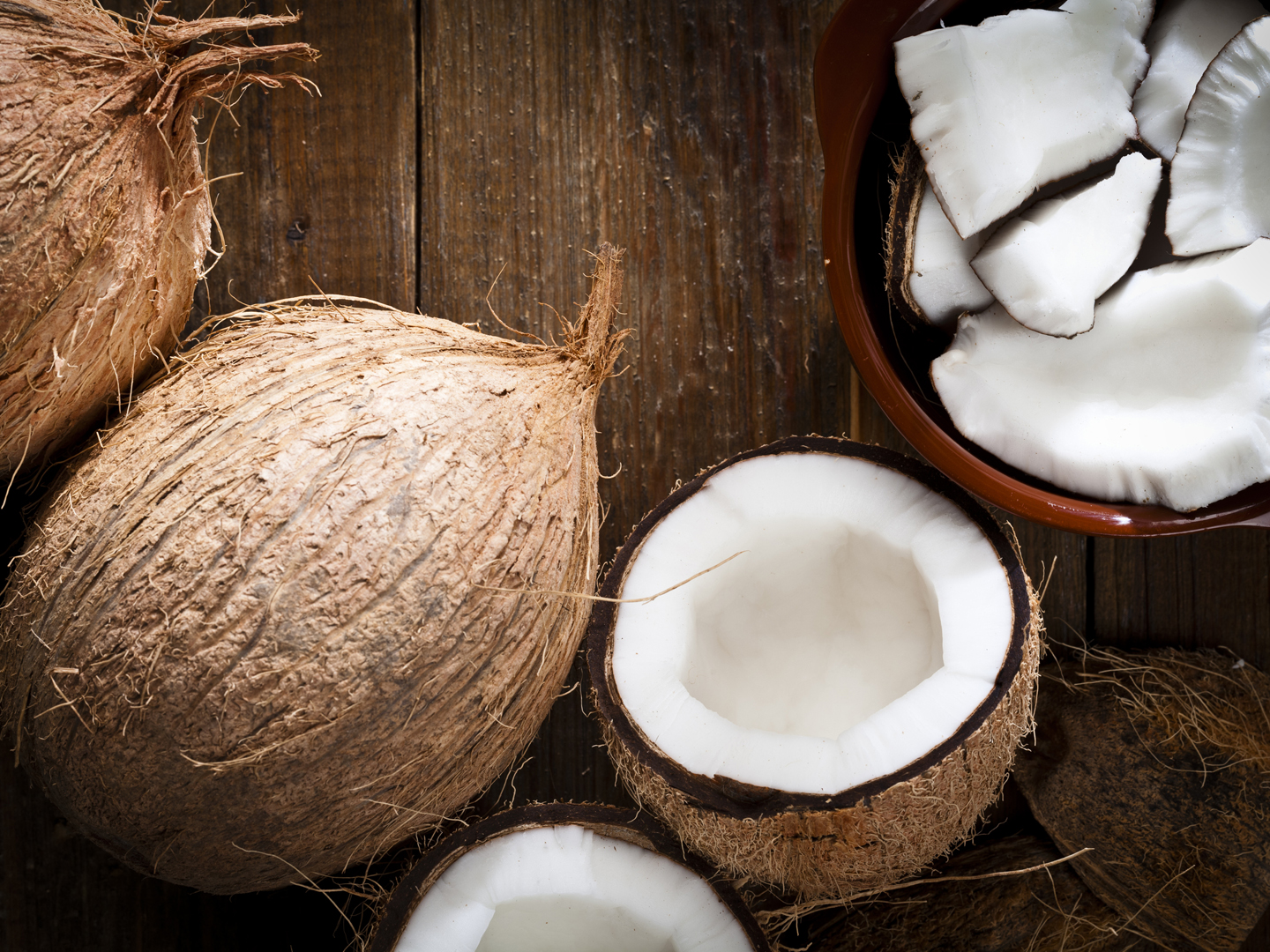
To produce coconut palm sugar, the process starts by collecting the sap from the flower buds of coconut palm trees. The flower buds are carefully tapped to allow the sap to flow out. The sap is then collected in containers. Next, the collected sap is heated and evaporated to remove the excess moisture. This results in a thick and sticky syrup-like consistency. The syrup is further processed and left to crystallize, forming granules of coconut palm sugar. The production process of coconut palm sugar is natural and does not involve any bleaching or refining agents, preserving its natural properties.
Nutritional Value Of Coconut Palm Sugar
Coconut palm sugar is often praised for its nutritional value. It contains essential minerals such as potassium, calcium, iron, zinc, and magnesium. Additionally, it is a source of vitamins B1, B2, B3, and B6. Coconut palm sugar also contains small amounts of phytonutrients and antioxidants. Compared to traditional white sugar, it has a lower glycemic index, meaning it has a less significant impact on blood sugar levels. While it is important to note that coconut palm sugar is still a form of sugar and should be consumed in moderation, its higher nutritional content makes it a healthier sweetening option.
Comparison Of Coconut Sugar And Coconut Palm Sugar
Coconut sugar and coconut palm sugar are two popular natural sweeteners that are often used as alternatives to traditional white sugar. While they share similarities, there are some key differences between the two.
In terms of taste, coconut sugar has a rich, caramel-like flavor with hints of butterscotch, similar to brown sugar. On the other hand, coconut palm sugar, made from the sap of the coconut palm tree, has a smoky flavor. The taste difference can affect the overall flavor profile of your dishes.
Another important consideration is the glycemic index. Coconut sugar has a lower glycemic index than most refined sugar sweeteners, which means it has a slower impact on blood sugar levels. Coconut palm sugar, although it is also considered lower on the glycemic index compared to white sugar, may have a slightly higher glycemic index than coconut sugar.
Both coconut sugar and coconut palm sugar contain essential minerals and vitamins, making them more nutritious alternatives to white sugar. However, coconut palm sugar may have a slightly higher mineral content due to the way it is processed.
When it comes to culinary uses, both sweeteners can be used in a variety of recipes, such as baked goods, desserts, and beverages. However, the differences in taste may make them more suitable for specific dishes. Coconut sugar’s caramel flavor works well in dishes like cookies and cakes, while the smoky flavor of coconut palm sugar pairs nicely with savory dishes like marinades and glazes.
In terms of environmental sustainability, both coconut sugar and coconut palm sugar production have their challenges. However, some companies are implementing sustainability practices to minimize the impact on the environment.
In conclusion, the choice between coconut sugar and coconut palm sugar ultimately comes down to personal preference and dietary needs. Coconut sugar is favored for its rich flavor and lower glycemic index, while coconut palm sugar has its own unique taste profile. Whichever you choose, using these natural sweeteners can be a healthier and more flavorful option compared to white sugar.
Taste Profile And Culinary Uses
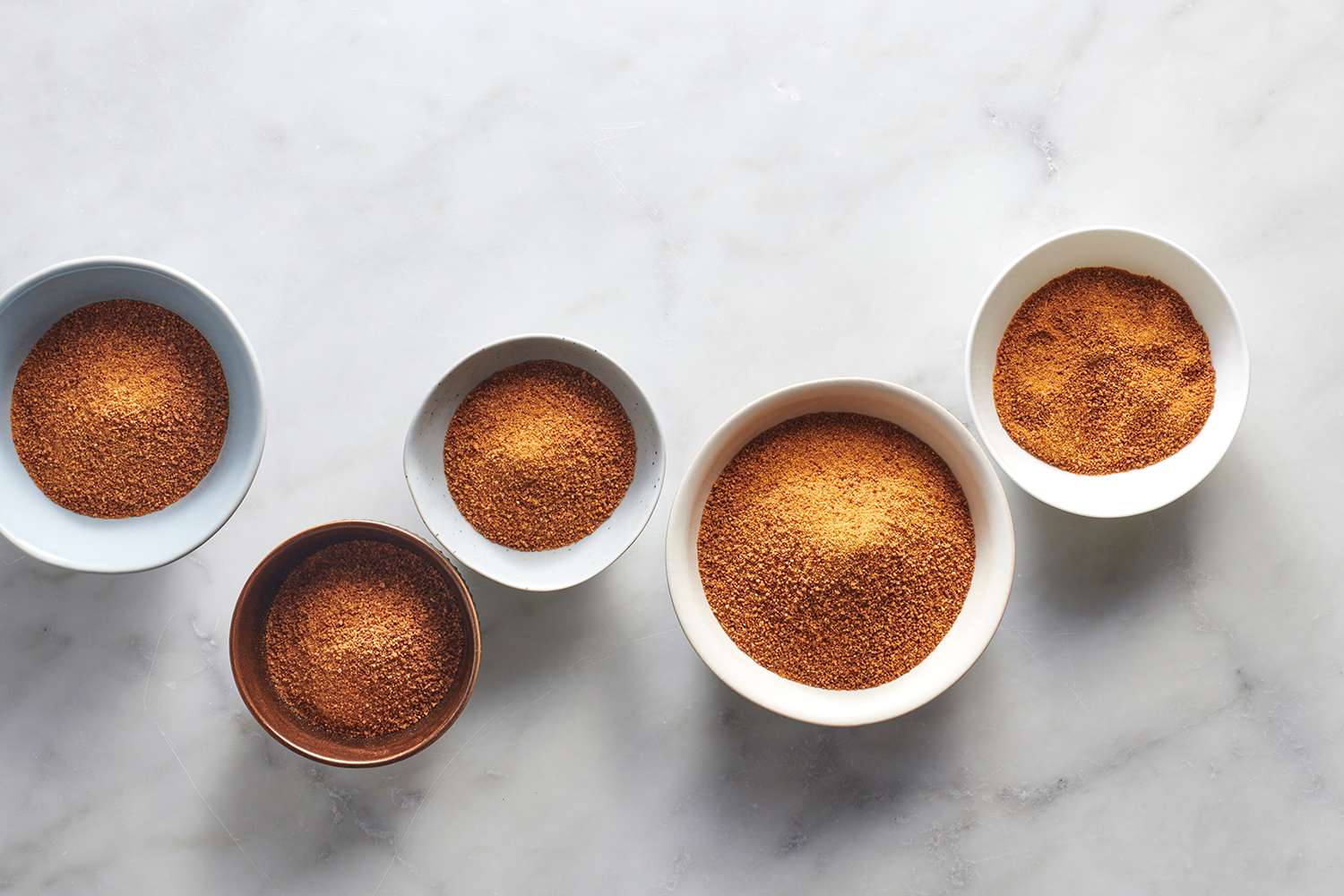
Coconut sugar and coconut palm sugar have distinct taste profiles that lend themselves to different culinary uses. Coconut sugar boasts a rich, caramel-like flavor with hints of butterscotch, making it an excellent substitute for brown sugar in cookies, cakes, and other baked goods. On the other hand, coconut palm sugar offers a smoky flavor that pairs well with savory dishes like marinades and glazes. Its unique taste can add depth and complexity to stir-fries, BBQ sauces, and even certain curry recipes. Experimenting with these natural sweeteners can elevate your dishes and create a delightful flavor experience.
Glycemic Index And Impact On Blood Sugar Levels
Coconut sugar and coconut palm sugar have a lower glycemic index compared to refined white sugar. The glycemic index measures how quickly a food raises blood sugar levels. While coconut sugar has a glycemic index of 54, coconut palm sugar has a slightly lower glycemic index of 35. This means that these sweeteners cause a slower and steadier rise in blood sugar levels compared to white sugar. However, it’s important to note that both coconut sugar and coconut palm sugar still contain carbohydrates and should be consumed in moderation, especially for individuals with diabetes or those monitoring their blood sugar levels.
Environmental Sustainability
Environmental sustainability is an important consideration when it comes to sweeteners like coconut sugar and coconut palm sugar. The production of these sweeteners can have significant environmental impacts, including deforestation and habitat destruction. However, some companies are adopting more sustainable practices, such as organic farming and responsible sourcing. Additionally, the coconut palm tree is a highly efficient and renewable resource, as it produces coconuts for decades. By choosing brands that prioritize sustainability, consumers can make a positive impact on the environment and support companies that are committed to preserving our natural resources.
Impact Of Coconut Sugar And Coconut Palm Sugar Production
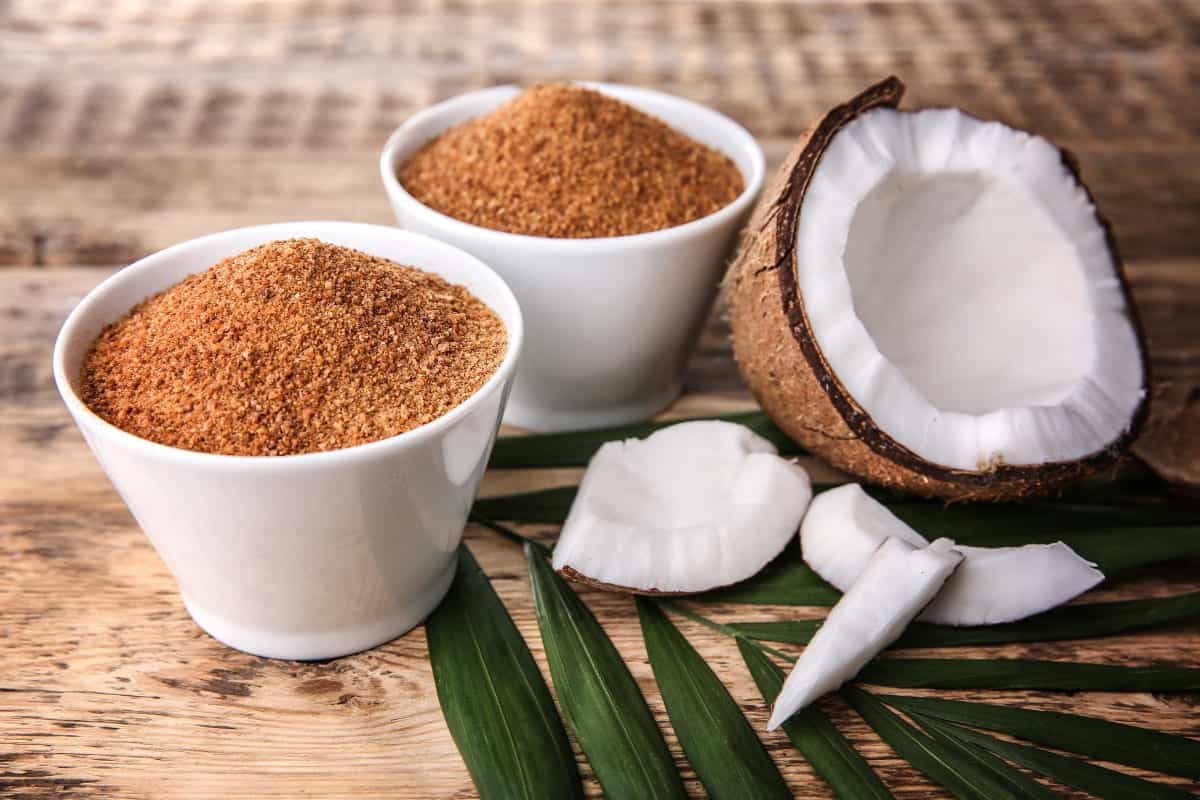
The production of coconut sugar and coconut palm sugar can have significant environmental impacts. The cultivation of coconut trees requires vast amounts of land, which can result in deforestation and habitat destruction. Additionally, the extraction process of both sugars can contribute to water pollution and soil degradation if not carried out responsibly. However, some companies are taking steps towards sustainability by adopting organic farming practices and sourcing their ingredients responsibly. By supporting brands that prioritize environmental sustainability, consumers can play a role in preserving our natural resources for future generations.
Sustainability Practices In The Industry
Sustainability is an important aspect of the coconut sugar and coconut palm sugar industry. Many companies are now adopting sustainable practices to minimize their environmental impact. This includes implementing organic farming methods, which avoid the use of harmful pesticides and promote soil health. Additionally, some companies are working towards fair trade certifications, ensuring that farmers receive fair compensation for their work. By supporting brands that prioritize sustainability, consumers can contribute to the preservation of natural resources and the well-being of farming communities. Together, these efforts aim to create a more sustainable and ethical industry for coconut sugar and coconut palm sugar production.
Conclusion
In conclusion, both coconut sugar and coconut palm sugar are natural alternatives to refined white sugar that offer unique flavors and potential health benefits. Coconut sugar is produced from the sap of coconut blossoms, while coconut palm sugar is made from the nectar of the coconut palm tree. They have similar taste profiles and can be used interchangeably in various recipes. However, coconut palm sugar has a slightly lower glycemic index and contains more vitamins and minerals compared to coconut sugar. Both options contribute to the sustainability of the industry by prioritizing organic farming practices and fair trade certifications. Incorporating these coconut sweeteners into your diet can provide a healthier and more environmentally friendly alternative to conventional sugar.
Key Differences And Similarities Between Coconut Sugar And Coconut Palm Sugar
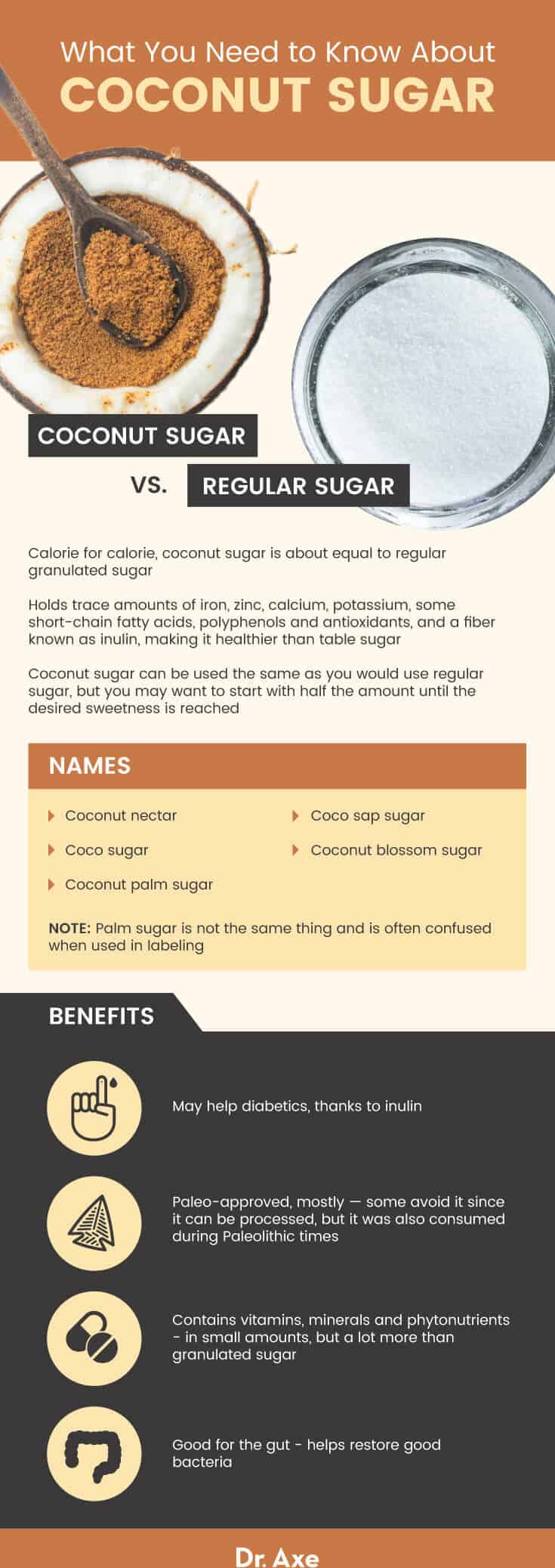
Both coconut sugar and coconut palm sugar are natural sweeteners derived from the sap of coconut trees, but there are some key differences and similarities between the two.
One major difference is in their production process. Coconut sugar is made from the sap of coconut blossoms, while coconut palm sugar is made from the nectar of the coconut palm tree.
In terms of taste, both sugars have a similar flavor profile, with hints of caramel and butterscotch. However, coconut palm sugar has a slightly smokier taste compared to coconut sugar.
In terms of nutritional value, coconut palm sugar contains more vitamins and minerals compared to coconut sugar. It is also known to have a lower glycemic index, making it a better option for those monitoring their blood sugar levels.
Despite these differences, both coconut sugar and coconut palm sugar can be used interchangeably in recipes, providing a natural and flavorful alternative to refined white sugar. Incorporating either of these sweeteners into your diet can contribute to a healthier and more sustainable lifestyle.
Recipes And Tips For Using Coconut Sweeteners
Coconut sugar and coconut palm sugar are versatile ingredients that can be used in a variety of recipes to add natural sweetness and enhance flavor. Here are some delicious recipes and tips for using these coconut sweeteners:
- Baked Goods: Replace refined white sugar with coconut sugar or coconut palm sugar in your favorite baked goods recipes such as cookies, cakes, and muffins. The caramel-like flavor of these sweeteners adds a unique twist to traditional desserts.
- Beverages: Stir coconut sugar or coconut palm sugar into hot beverages like coffee or tea for a hint of sweetness. You can also use them to sweeten smoothies or homemade fruit juices to create a refreshing and healthier alternative to sugary drinks.
- Sauces and Dressings: Use coconut sugar or coconut palm sugar to balance the acidity of sauces and dressings. They work well in Asian-inspired dishes like stir-fry sauces and marinades, giving them a touch of sweetness and depth of flavor.
- Granola and Energy Bars: Sprinkle coconut sugar or coconut palm sugar over homemade granola or incorporate them into homemade energy bars for a natural sweetener. These sweeteners provide a subtle caramel undertone that pairs well with nuts, seeds, and dried fruits.
- Caramelized Treats: Make homemade caramel sauce or caramelized fruits like bananas or apples using coconut sugar or coconut palm sugar. The rich, smoky flavor of these sweeteners will take your caramel creations to the next level.
Remember to adjust the quantity when using coconut sweeteners as they are slightly less sweet than traditional sugar. Experiment with different recipes and enjoy the delicious and healthier alternatives that coconut sugar and coconut palm sugar can offer.
FAQ About Coconut Sugar Vs Coconut Palm Sugar: Sweetening Agents Explored
Q: What is the main difference between coconut sugar and coconut palm sugar?
A: Coconut sugar and coconut palm sugar are the same, both terms are often used interchangeably to refer to the sweetener derived from the sap of the coconut palm tree.
Q: Are there any nutritional differences between coconut sugar and coconut palm sugar?
A: No, both coconut sugar and coconut palm sugar have similar nutritional profiles as they are derived from the same source. They are rich in minerals such as iron, zinc, calcium, and potassium.
Q: How do coconut sugar and coconut palm sugar compare to regular table sugar?
A: Coconut sugar and coconut palm sugar have a lower glycemic index compared to regular table sugar, making them a better option for those looking to manage their blood sugar levels.
Q: Can coconut sugar and coconut palm sugar be used as a 1:1 substitute for regular sugar in recipes?
A: Yes, coconut sugar and coconut palm sugar can generally be used as a 1:1 substitute for regular sugar in recipes. However, they may impart a slightly different flavor to the final dish.
Q: Are coconut sugar and coconut palm sugar considered a healthier alternative to regular sugar?
A: While coconut sugar and coconut palm sugar offer some nutritional benefits over regular sugar, they should still be consumed in moderation as they are still forms of added sugars.

ToroGrill Canada is excited to share our one-of-a-kind and authentic South American BBQ flavors with the wonderful people of Canada. Our journey began with a passion for bringing South America’s rich and vibrant culinary traditions to a new audience, and we have been dedicated to this mission ever since. Our story is one of inspiration, hard work, and the pursuit of excellence. Every recipe, every ingredient, and every cooking technique has been carefully honed and perfected to ensure that when you take a bite of our food, you experience the true essence of South American BBQ.